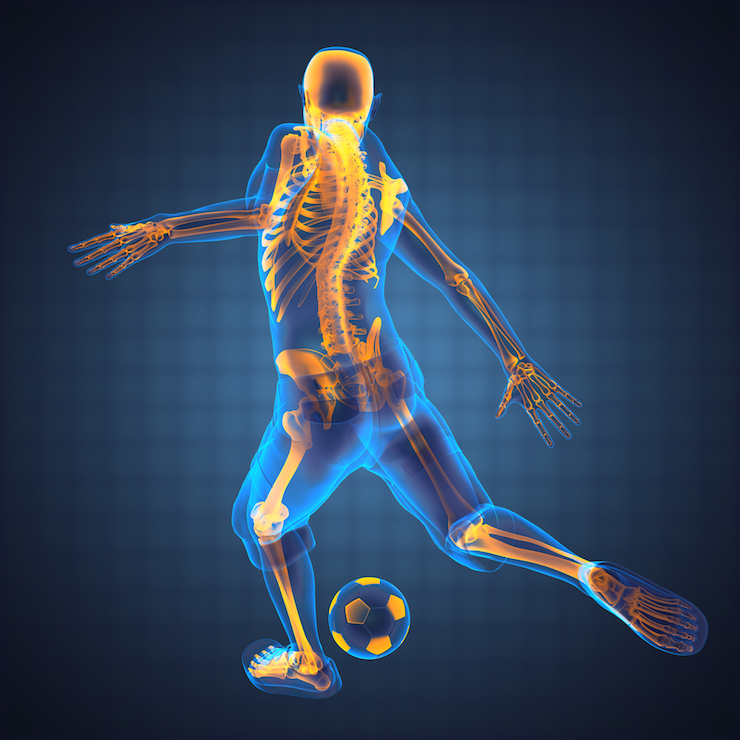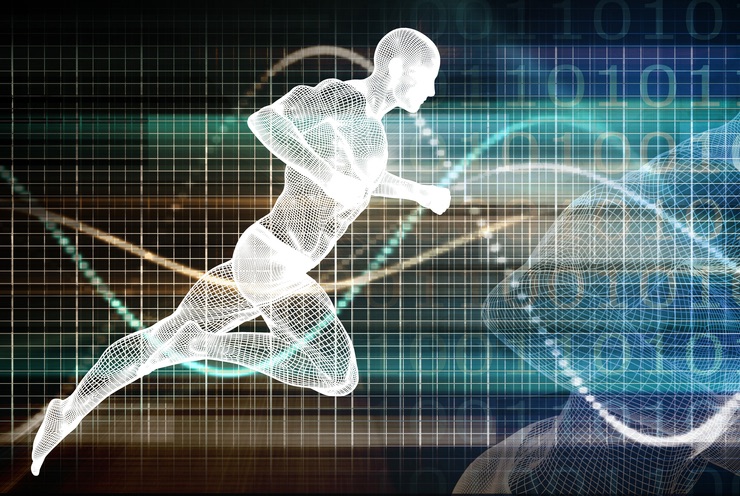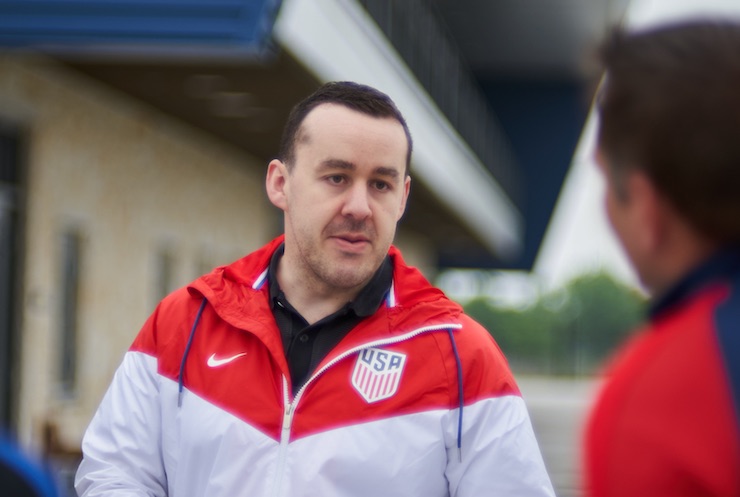Making American Soccer Great: U.S. Soccer’s High-Performance Director James Bunce on How Sports Science Helps Youth Soccer Players
What are the ‘Best Practices’ for elite soccer players to reach optimum performance? How can Sports Performance help players become better? Here is the second interview with James Bunce, U.S. Soccer’s High-Performance Director on what really makes a difference.
U.S. Soccer new Sports Performance Director is former EPL’s Head of Performance James Bunce who crossed the Atlantic to help accelerate U.S. Soccer’s ability to develop world-class players. Bunce has already helped develop many world-class players become Premier League and international soccer stars. As the High-Performance Director, Bunce’s initiatives are dedicated to improving elite athletic performance.
SoccerToday’s Diane Scavuzzo interviewed James Bunce on how sports performance, and especially nutrition, makes a difference. Interview Part I covered the difference in recovery needs for a player playing the #9 compared to the #6.
Here is the second of the series of interviews with James Bunce — on using the intelligence of Sports Performance to help develop world-class players.

Diane Scavuzzo: What should a player eat after a game to recover? What ‘Best Practices’ do you recommend?
James Bunce: So, it’s a great question. And I think the science is really clear.
Eat right, Sleep right, Train right.
And, if you get those three things right, you’ll have a very good professional athlete.
What to eat after a game? If you can, grilled chicken with asparagus and brown rice is great straightaway, but here at the fields, you can’t get that so that’s where the nutrition shakes come into play.
Diane Scavuzzo: A lot of people get confused about the optimum time to Eat-to-Recover. What is the best time to have that grilled chicken, asparagus, and rice, or a supplement?
James Bunce: In sports science, people often talk about the window of opportunity and things like that. The sooner you can give your body the nutrients it needs to recover and grow and have energy, it is advantageous.
So the sooner after a match that you can feed your body properly, the better.

But it doesn’t mean that if you don’t get food on within an hour or so of training or match, the nutrients lose all its ability to help you. Even if it’s not possible in that first 30 to 60-minute window, it’s important to get the nutrition and hydration.
From our perspective, we try to ensure that the player can get food as quickly as possible after training or games because the sooner it enters the body, the sooner the body digests it, the sooner the body has the building blocks to start that recovery process, building back muscles that have been damaged.
The importance is the quality of the nutrition, the replenishment, and making sure that you are eating the right food groups, the right kind of proteins and carbohydrates — that is more important than if a player eats within a 30-minute or 90-minute window.
Diane Scavuzzo: If a player gets off of the field and they go to a fast food restaurant and they have a hamburger and french fries with a diet soda, what are they doing to their body?
James Bunce: I would not encourage that kind of behavior, I would say you’re better off waiting.
For elite soccer players, it’s about the quality of the nutrition.
If you know that you are going to be traveling to a game or training I would recommend players bring packed lunches if there are not a lot of quality choices in the area.

Diane Scavuzzo: I know that their parents don’t always realize what fast food is doing to an athlete’s body.
James Bunce: Of course not. A player’s body is crying out for calories when they finish playing —soccer is a highly, highly explosive and energy-dependent sport so players deplete their bodies and when your body is depleted, it cries out from a cognitive perspective for food. It’s saying, “We need food! Look there is a fast food spot!”
Now, by definition, players are eating food at a fast food restaurant, but again, it’s the quality of the food that is important.
Yes, they’re ingesting protein from a burger, but is that protein as rich in amino acids as it would be if it was a piece of salmon or a grilled piece of chicken? Is the potato that’s deep-fried as good as vegetables and brown rice? And, the answer is no.
Players Should Not Eat A Fast Food Hamburger After A Game
So, eating a fast food burger and fries are hitting the replacement of calories, but are those the micronutrients which are really beneficial for recovery?
And so, again, while I would implore players to eat quality food as soon as they can, I wouldn’t recommend eating at a fast food place quickly while traveling home.
Related Soccer News: U.S. SOCCER’S FOCUS ON SPORTS PERFORMANCE – JAMES BUNCE ON BEST PRACTICES





